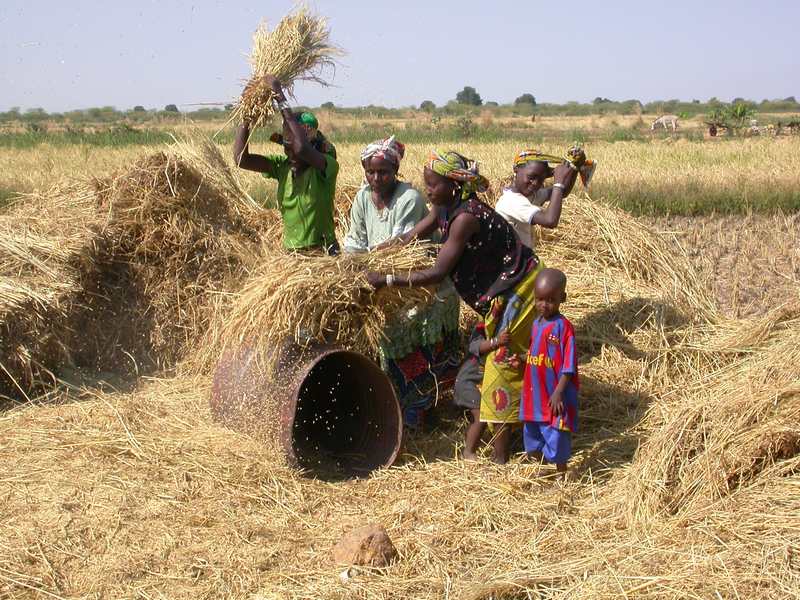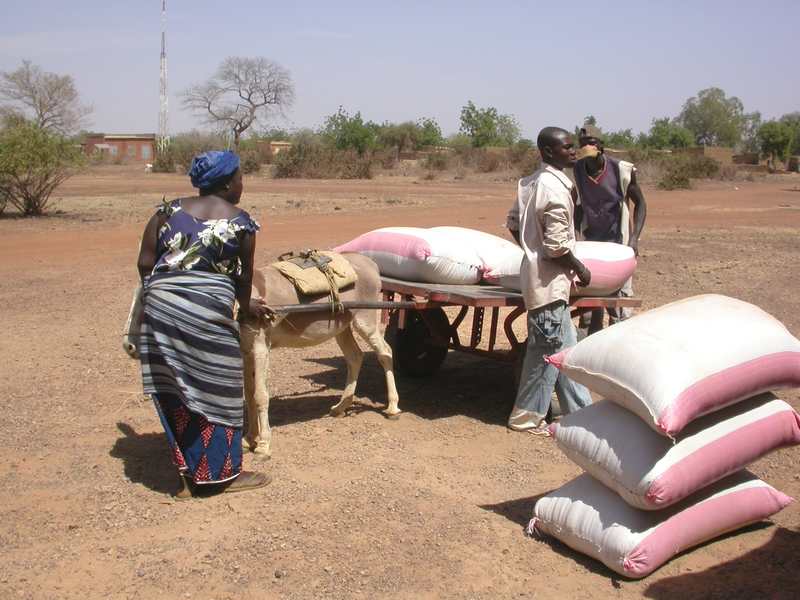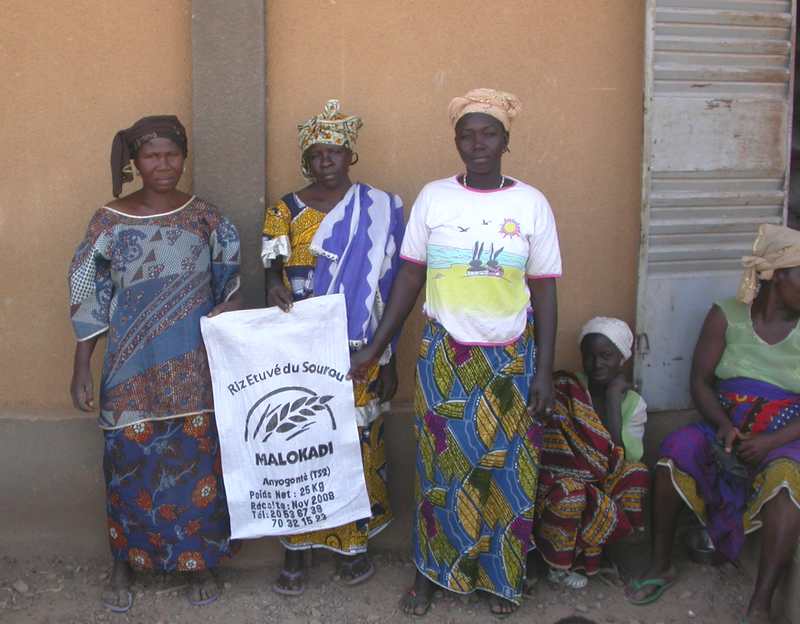Negotiations on the backs of the farmers!
The Government of Burkina Faso announced price reductions for a three month period, starting on May 9th, on rice, vegetable oil and sugar, i.e. products of mass consumption. The decision was taken the day before on the 8th, following various protest demonstrations against the high cost of living and negotiations with consumer organisations, trade unions, the CCVC (The Coalition against rising living costs) and economic operators, according to the trade minister, Patiendé Arthur Kafando. Once more, the farmers, who represent 80% of the population, were excluded from the talks.
 Let us take a look at rice. The Government has made a two pronged move: one favouring imported rice, the other regarding domestic rice.
Let us take a look at rice. The Government has made a two pronged move: one favouring imported rice, the other regarding domestic rice.
Imported rice of standard quality (25% broken rice) or rather of dubious quality, currently sells for between 20 000 and 21 000 francs/50 kg on the market in Ouagadougou. During a three month period it will be sold at 16 000 francs in Ouagadougou and Bobo Dioulasso, a reduction that will cost the government one billion francs in subsidies.
During the same period the SONAGESS (Société Nationale de Gestion du Stock de Sécurité) the state company in charge of food security stocks, will sell its stock of locally produced rice for 15 000 francs/50 kg.
This twofold intervention gives rise to a number of questions.
1. To govern is to foresee! There is no indication that the world market price of rice will have come down in three months. It is entirely possible that at the end of the subsidised period, traders will sell the imported rice at 22 000 francs or even 25 000. What will the Government do then?

 2. Why not keep the subsidies for local products? Would not the one billion francs that the Government is to spend (not to say waste) on imported rice, have been put to better use for the development of the domestic rice trade?
2. Why not keep the subsidies for local products? Would not the one billion francs that the Government is to spend (not to say waste) on imported rice, have been put to better use for the development of the domestic rice trade?
3. Why make the arbitrary decision (through the grant of subsidies) to sell local rice at a lower price than the imported? As if the country’s own rice were of lesser quality than the imported (which is often 5 – 10 years old!) It is precisely the contrary that is true. For years now I have been eating nothing but rice produced here in Burkina and I can testify to its quality, especially the variety the specialists call TS2 and which the farmers of Sourou sell under the brand name “Aniongontè” (Jula for “unrivalled”, “the best”). In this the Government is giving the wrong signal.
4. Why were not the representatives of the farmer organisations, in particular the rice farmers, invited to the negotiations, where these decisions were taken?
5. Does the Government still stick to its policy of “feeding the cities at the lowest possible cost”? Has it learnt nothing from the 2008 food crisis? Does it not remember the old burkinabè saying:
“To sleep on a foreign straw mat is like sleeping on the floor.”
Paris, June 1st 2011
Maurice Oudet
Director, SEDELAN









